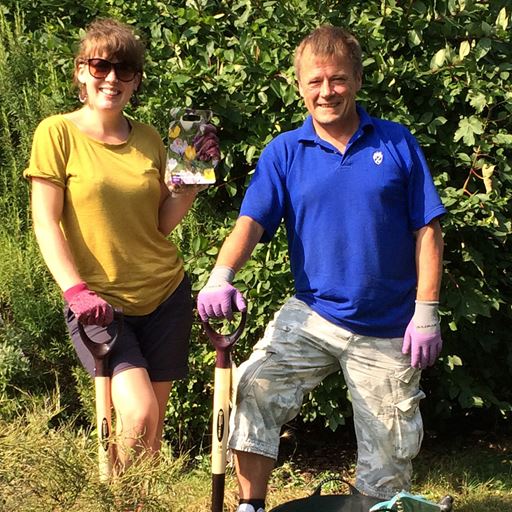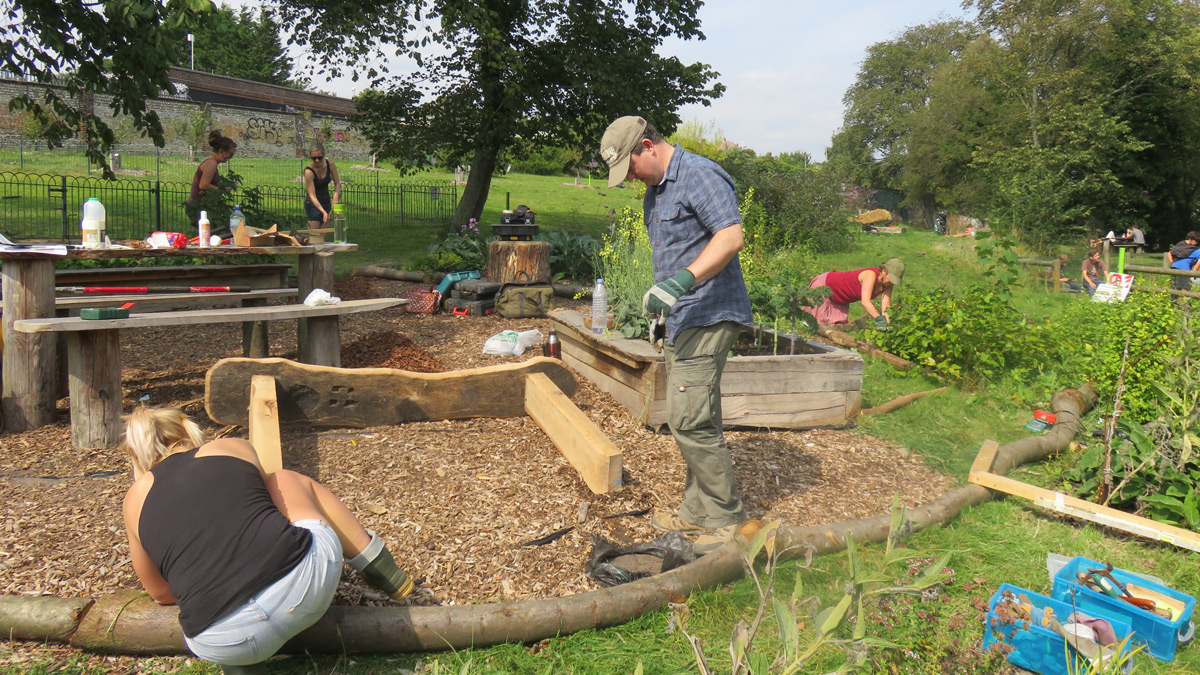The Sharing the Harvest project by Brighton & Hove Food Partnership saw more than 2,000 people with learning disabilities, autism, or experience of mental health problems, homelessness or addiction, volunteer in more than 75 community gardens across Brighton. Our research found that:
- 97% of participants reported improved happiness, mood or wellbeing
- 89% reported improved physical health
- 90% reported greater skills or confidence
The evaluation was carried out by our pioneering Green Exercise Research Group. Research team member Professor Jules Pretty said: “We know that nature is good for our wellbeing, and that activities in green places bring both mental and physical health benefits.
“Community gardening does something more: it links people in urban settings to places where food can be grown together, and shows how skills and confidence can be built.”
The study also found that participants increased their fruit and vegetable intake by an average of 14% and physical activity levels across the group increased between 10% and 17%.
Jess Crocker, senior manager of Sharing the Harvest, said: “Even more promising [than the mental health benefits] are all the other benefits the project brought about, such as improved diet and increased exercise. The people we work with are more likely to have poor physical health and face a range of life challenges, which makes these improvements even more important. Community gardening is quite clearly powerful medicine.”


)




